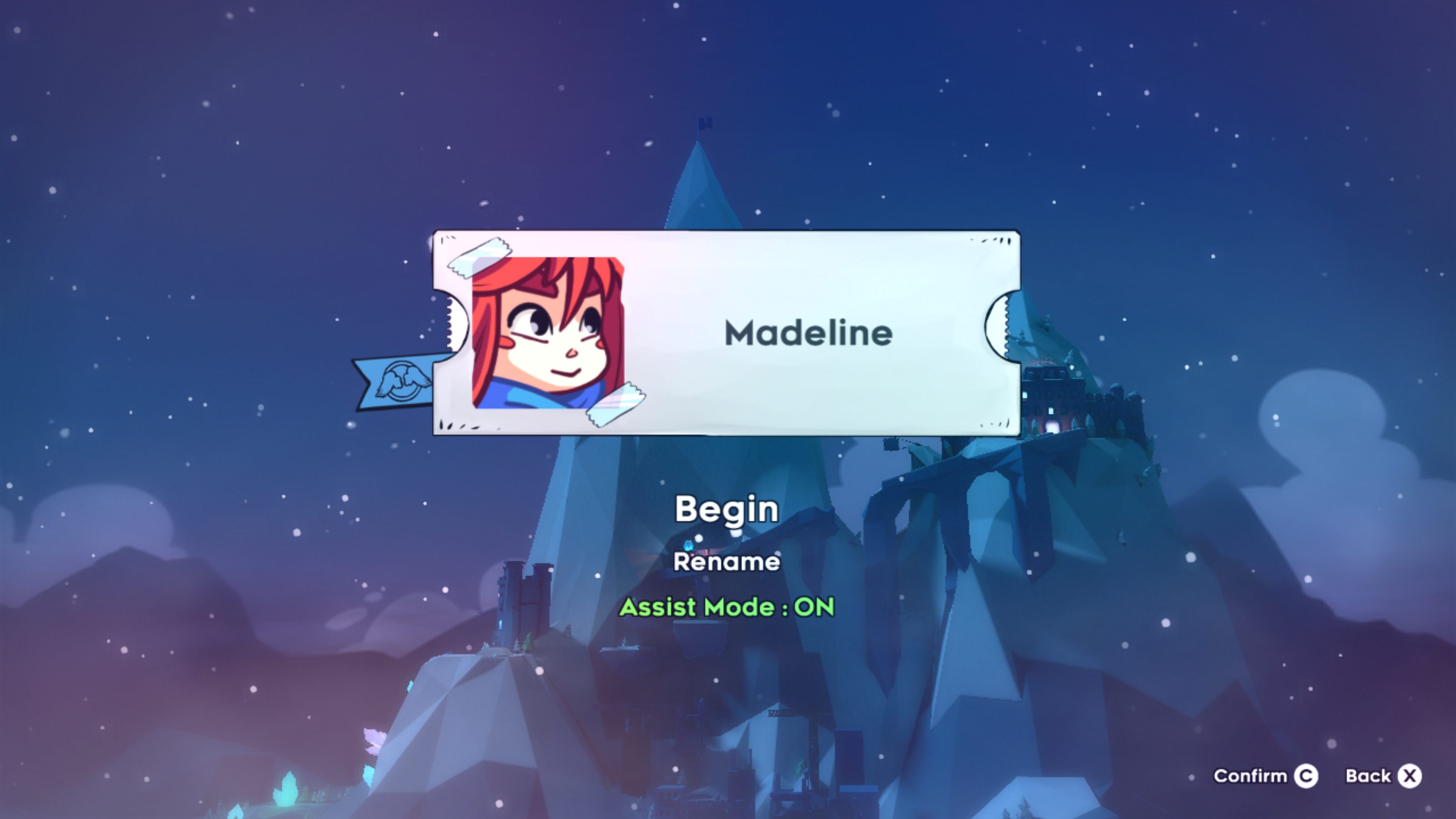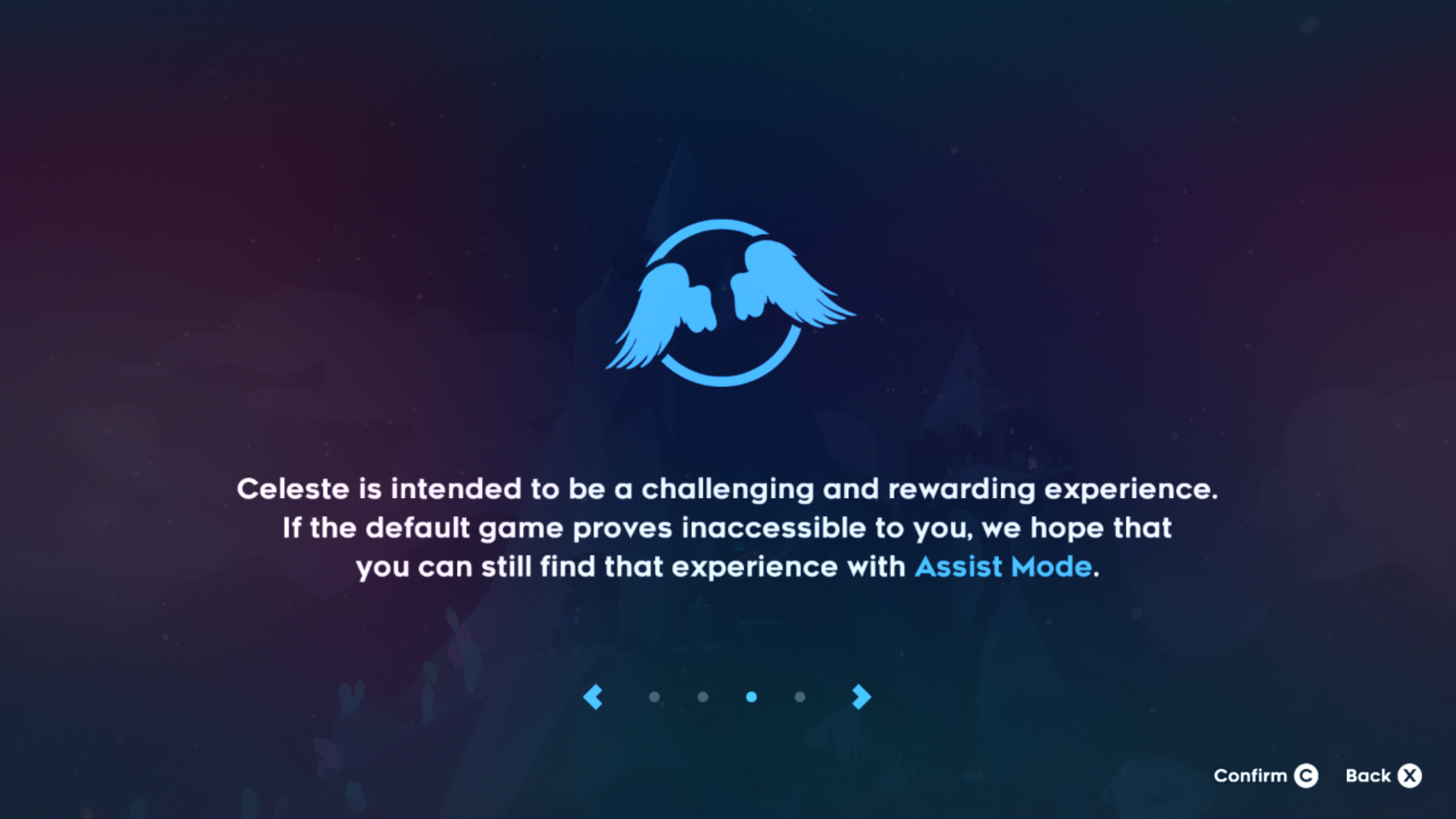This text contains very minor thematic spoilers for the game Celeste.
Does using accessibility features somehow taint the original intended game experience, or does it make more sense to ensure that playing doesn’t feel like a chore?
I, like many others, finally caved in to the sweet temptation of Epic Games Store’s free games some time ago. More specifically because of Celeste, a lauded side-scrolling platformer by Matt Makes Games and one of the games I have been most excited to play for a while. The game puts you in the shoes of Madeline, a determined girl with a simple goal: to scale the game’s namesake Celeste mountain. Her iron will and the motivation behind the journey are uncovered as the story progresses. I’ve been playing Celeste on and off recently and I have really enjoyed how well executed everything is – from the actual gameplay to the music, themes, and atmosphere the game delivers.
The thing is, this game is HARD and ruthless to a tee. Its difficulty is still fair, no doubt: I haven’t encountered any “unfair” deaths, meaning every failure can be traced back to me and only me. Still, Celeste is brutally difficult enough that I’ve been really struggling for nearly every inch of progress. I have no qualms with hard games per se, since I’m completely at home with many challenging roguelikes and hack & slashes and will happily bash my head against the wall for hours in Don’t Starve or Dark Souls. Platformers, however, have never really been my cup of tea difficulty-wise. I’ve run into a weird conundrum of intensely wanting to complete the game but being frustrated by the gameplay itself most of the time. Then I discovered that the game has a feature called the “Assist Mode”, offering a variety of gameplay options to compensate for the immense difficulty.
Difficulty options and accessibility features in games in general have been a hot topic of sorts in the gaming community for a while now. There has been much needed discussion on the accessibility side of games – delivering experiences that provide ways for everyone to enjoy the content regardless of any personal limitations. Another aspect of this has been to make games more approachable to people who don’t necessarily have an expansive gaming background, hobby, or other such prior grasp of video games and their norms, tropes, and eccentricities. Arguments have been made both for and against making games more accessible in all aspects, and while I’m absolutely in favor of presenting options to ensure a fulfilling experience for as many kinds of players as possible, this is an interesting issue to think about on a personal level.
I don’t have any personal limitations, physical of otherwise, but I do lack platformer experience and don’t enjoy especially harsh gameplay challenges in the genre. In fact, I’m mostly attracted to Celeste because of its story, atmosphere, and the themes it deals with. I can progress in the game, but it takes a huge deal of painstaking effort (more specifically, in the form of over 350 deaths already in the first level!). I’m able to play the game as intended, but not exactly enjoying it most of the time. Should I then use the provided Assist Mode to make the game less frustrating? One complicating factor is that the game is actually supposed to be hard, not only on the player’s side, but story-wise as well. Madeline embarks on her mountain climbing journey precisely because it’s extremely difficult. She has something to prove to herself. It could be argued that by “suffering” accordingly, I would get the full intended Celeste experience that the developers have spent a great deal of time honing, since I would empathize with Madeline more. The experience of overcoming adversity through struggle. But even so, do I really want to spend hours of my free time on something I resent doing, just to experience a few enjoyable moments along the way?
The question I’m asking here is: will my own, modified, and subjectively more enjoyable experience feel as fulfilling as the developers’ intended, more optimized experience in the end? I would still like to experience the game by playing it, since I happen to be fortunate enough to own it. Should games be approached as something to be molded for one’s own needs? On the other hand, does all media even need to be for everyone? Then again, video games as a medium are especially filled to the brim with implicit knowledge and skills – they often aren’t easy to approach without sufficient background knowledge. To me, this sort of gatekeeping is a real shame and stops many newcomers in their tracks, so perhaps it would do us good to let go of the stubborn devotion to the so called “original” experience and let all subjective experiences be as valid as any other. In other words, let’s see about that Assist Mode.



